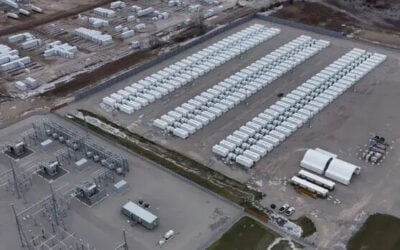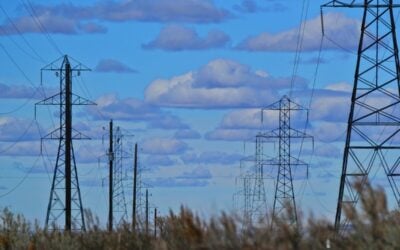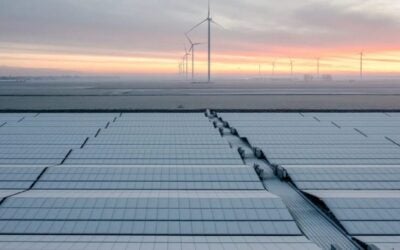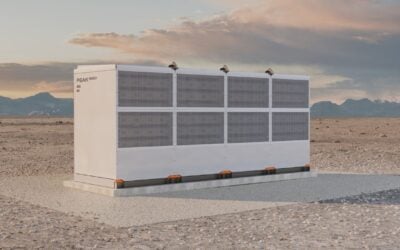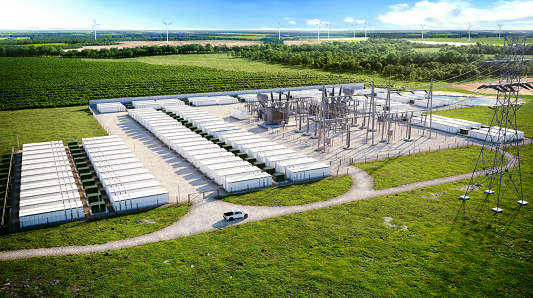
The first contract awards for Ontario for the province’s expedited LT-1 energy capacity procurement have been announced, in which 739MW of battery storage bids were successful.
Back in October last year, the government of Canada’s most populated province ordered the procurement of between 1,500MW and 2,500MW of energy storage, out of a total 4,000MW of capacity that will be needed to keep the lights on as demand for electricity grows.
While Ontario doesn’t have a shortfall of electricity today, with the population set to continue growing and electrification of key industries and transport also an ongoing trend, after 2025 the need for new resources will become acute.
The Ontario Independent Electricity System Operator (IESO) manages power networks in real-time and is responsible for planning for future electricity needs. Through Canada’s biggest-ever procurement, the IESO said yesterday that seven battery energy storage system (BESS) projects have been awarded contracts, ranging from 5MW to 300MW per site.
Try Premium for just $1
- Full premium access for the first month at only $1
- Converts to an annual rate after 30 days unless cancelled
- Cancel anytime during the trial period
Premium Benefits
- Expert industry analysis and interviews
- Digital access to PV Tech Power journal
- Exclusive event discounts
Or get the full Premium subscription right away
Or continue reading this article for free
In addition to that 739MW of BESS, contracts were awarded to 589MW of existing gas-fired generation facilities, which the IESO said would be essential to help maintain electric system reliability as Ontario’s electricity demand and its share of variable renewable energy generation grow simultaneously.
The primary function of procured assets will be in contributing to resource adequacy, Patrick Bateman, an independent consultant who works closely with trade association Energy Storage Canada told Energy-Storage.news in a recent interview.
Nuclear power station retirements and refurbishments will take some of that existing capacity offline, while steel and aluminium plants in the province are switching over to electric arc furnaces, and electrification of other sectors like commercial buildings and transport mean a great deal of projected load growth in the years to come.
Meanwhile, the BESS assets will in addition to providing firm dispatchable capacity to the IESO network also be able to participate in some ancillary services to add extra revenue streams, Bateman said.
It will represent a big jump in installed BESS capacity for the province, and for Canada. While more than 90% of proposed battery storage additions at grid-scale in the country will be in Ontario and Alberta, according to Patrick Bateman, and both provinces are current leaders in storage adoption in Canada, at present Ontario has around 225MW of behind-the-meter large-scale commercial and industrial (C&I) batteries and around the same amount of front-of-the-meter storage – mostly in the form of pumped hydro energy storage (PHES) and pilot projects using various technologies.
The IESO said that it expects there will be at least 1,217MW of storage capacity on its networks, as well as smaller storage facilities at distribution level or at C&I facilities by the time awarded projects come online by the end of 2025.
As well as there being more to come in the next rounds of the procurement, the IESO recently awarded key contracts for the 250MW/1,000MWh Oneida energy storage project which is being developed by a consortium including developer NRSTor, independent power producer (IPP) Northland Power and selected technology provider Tesla.
Winners include 4-hour duration BESS projects
Winners of the procurement with BESS bids include Boralex, a Toronto Stock Exchange-listed renewable energy developer, with two projects: Hagersville Battery Energy Storage Park, a 300MW, 4-hour duration (1,200MWh) project in Ontario’s Haldimand County and Tilbury Battery Storage Project, which will be a 80MW/320MWh system in the Municipality of Lakeshore.
Power producer Capital Power was among the other winners, with one 114MW battery storage bid and an expansion of one of its natural gas-fired facilities that will provide the IESO with 80MW in summer and 100MW in winter.
Winners are expected to sign finalised long-term contracts with the IESO by mid-June. The IESO said more contracts could be announced by summer, but it also expects to launch another energy storage supply procurement later this year.
The leading example of Alberta and Ontario is a topic covered in the forthcoming next edition of our quarterly journal, PV Tech Power (Vol.35), due out in the coming days. Subscription to PV Tech Power is included as part of the Energy-Storage.news Premium package.
More to follow…

